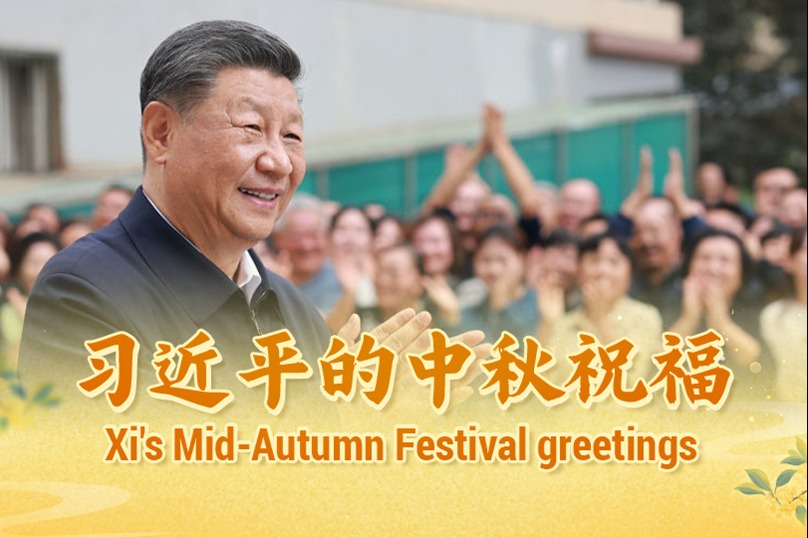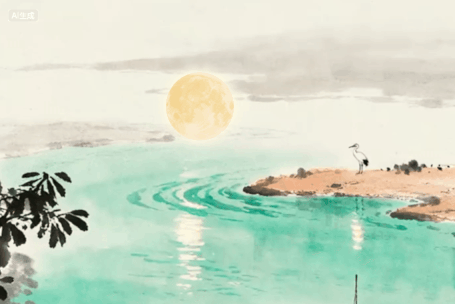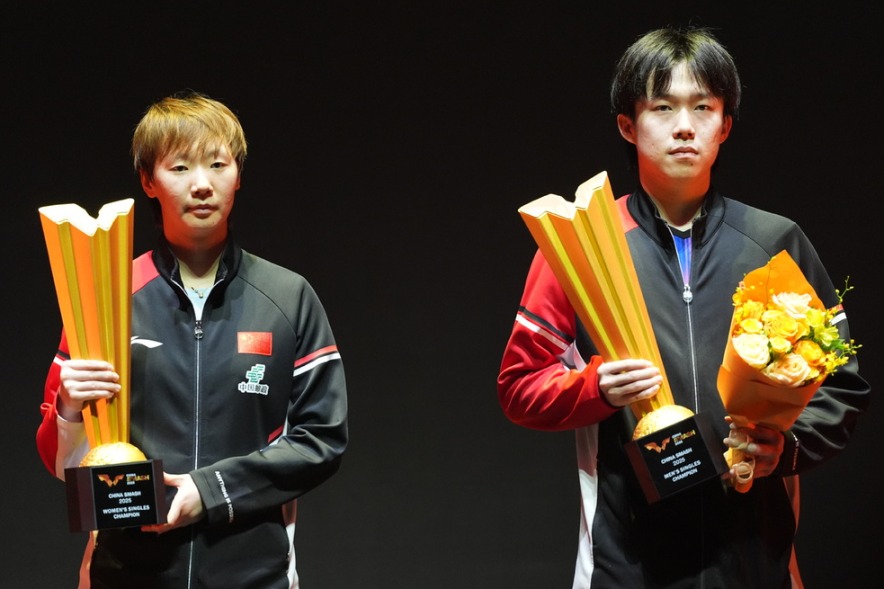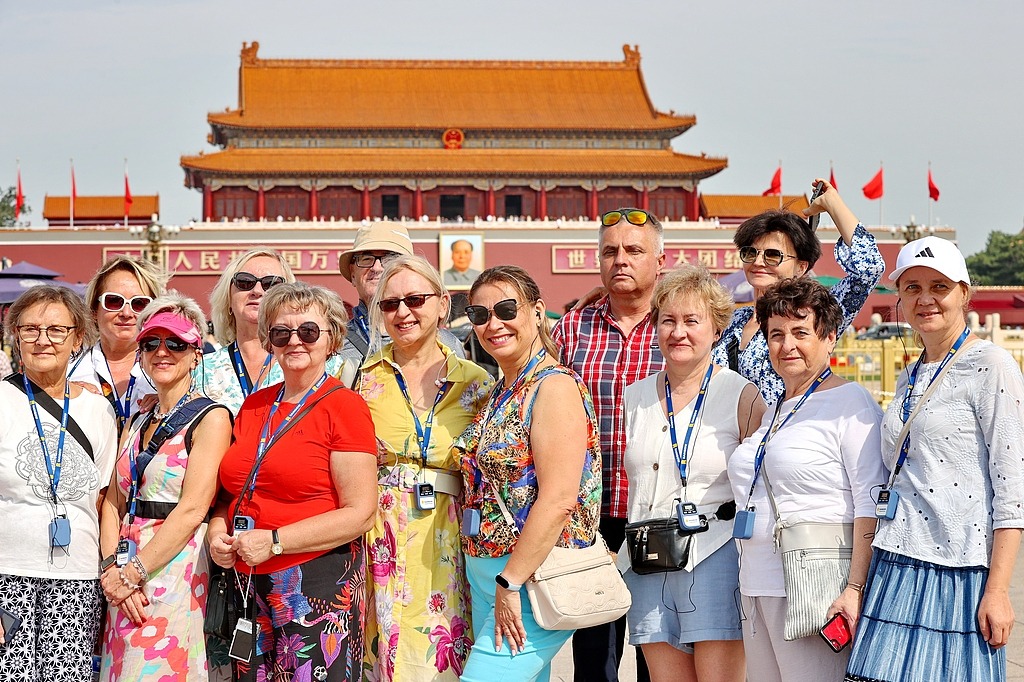Exhibitions across Strait memorialize war victory
Downplay by island authorities betrays historical memory, further reveals separatist stance


Betraying historical facts
In August, the Taiwan authorities said they had banned government officials from attending September's military parade in Beijing to mark the victory in the Chinese People's War of Resistance Against Japanese Aggression, along with former senior "defense, intelligence and diplomatic" officials. The penalties for violating this ban include the revocation of pensions, a move that has stirred criticism across the Taiwan Strait.
Critics have also condemned Taiwan's leader, Lai Ching-te, for not organizing events to commemorate the victory, accusing Lai of propagating an erroneous view of World War II history by beautifying Japan's colonial past in Taiwan and ignoring the sacrifices made by the Chinese people.
Former Taiwan leader Ma Yingjeou expressed anger and disappointment, saying that Lai's description of the war's victory as merely "the end of World War II" in a post on his Facebook page on Friday downplayed Japan's wartime atrocities.
Lai, who pandered to Japan and forgot the humiliation and sacrifices of the Chinese people, is unfit for leadership in Taiwan, Ma said, adding that "historical truths such as the brutal invasion by Japan and the countless sacrifices made by the Chinese should not be erased or distorted".
He urged Lai to remember those who sacrificed their lives resisting Japanese invaders, including Taiwan people who died during Japan's colonial rule, and warned that without this acknowledgment, Lai's talk of "Taiwan values" would be seen as mere political maneuvering devoid of genuine concern for the people.
Zhu Fenglian, spokeswoman for the Taiwan Affairs Office of the State Council, condemned Lai for a complete abandonment of the national stance and the deliberate disregard for the historical facts of the war.
She said that Lai's rhetoric in his Facebook post supported a false narrative of "democracy versus authoritarianism" and promotes separatist "Taiwan independence" ideology, which ultimately aims to achieve "independence" through military means and foreign support.
Zhu warned Lai that any attempt to distort this history would be in vain, any actions challenging the post-war international order would be self-defeating, and any schemes to divide the nation were delusional.
She expressed hope that compatriots on both sides of the Taiwan Strait would remember history, honor the martyrs, uphold national righteousness, safeguard the fruits of victory and firmly oppose "Taiwan independence" and external interference.
Sung Ping-chung, executive deputy chief editor of Taiwan's Meihua Media News, said some politicians in Taiwan blindly idolize Japan because they were deliberately covering up the war crimes Japanese invaders committed during the time they colonized Taiwan.
This year marks the 110th anniversary of the 1915 Tapani Massacre, where in the Yujing district of the city of Tainan, the Japanese invaders killed people from 8 to 80 years old.
"Why is no one talking about this at all? This is a terrible situation," Sung said.
"We just need to make sure everyone knows about it, and people can then form their own opinion. I don't believe anyone could visit this museum and not feel moved," he said after visiting the Battle of Changde Memorial Museum in Hunan province earlier this month.
Q&A
Q: Why is the claim that "a Taiwan emergency is a Japanese emergency" a false narrative?
A: This year marks the 80th anniversary of the recovery of Taiwan. Japan undeniably bears historical responsibilities on the Taiwan question. The Cairo Declaration issued by China, the United States and the United Kingdom in 1943 states in explicit terms that Taiwan is a territory that Japan had stolen from the Chinese, and shall be restored to China.
Article 8 of the Potsdam Proclamation, jointly issued by China, the US, the UK and the Soviet Union in 1945, stipulates that the terms of the Cairo Declaration shall be carried out. On Aug 15, 1945, Japan accepted the Potsdam Proclamation and announced unconditional surrender. Later in 1972, Japan pledged in the China-Japan Joint Statement that it firmly maintains its position under Article 8 of the Potsdam Proclamation.
The Treaty of Peace and Friendship Between China and Japan, signed in 1978, clearly states that the principles set out in the statement should be strictly observed. The treaty was deliberated and approved by the legislators of the two countries, and together with the China-Japan Joint Statement, constitutes a legally binding documents that provide guidance for bilateral ties.
The above-mentioned historical evidence and legal basis fully show that abiding by the one-China principle is a serious political commitment and obligation under international law that Japan must follow.
The false narrative, including "a Taiwan emergency is a Japanese emergency", will gravely erode the political foundation of China-Japan relations.
Source: Ministry of Foreign Affairs

zhangyi1@chinadaily.com.cn
























